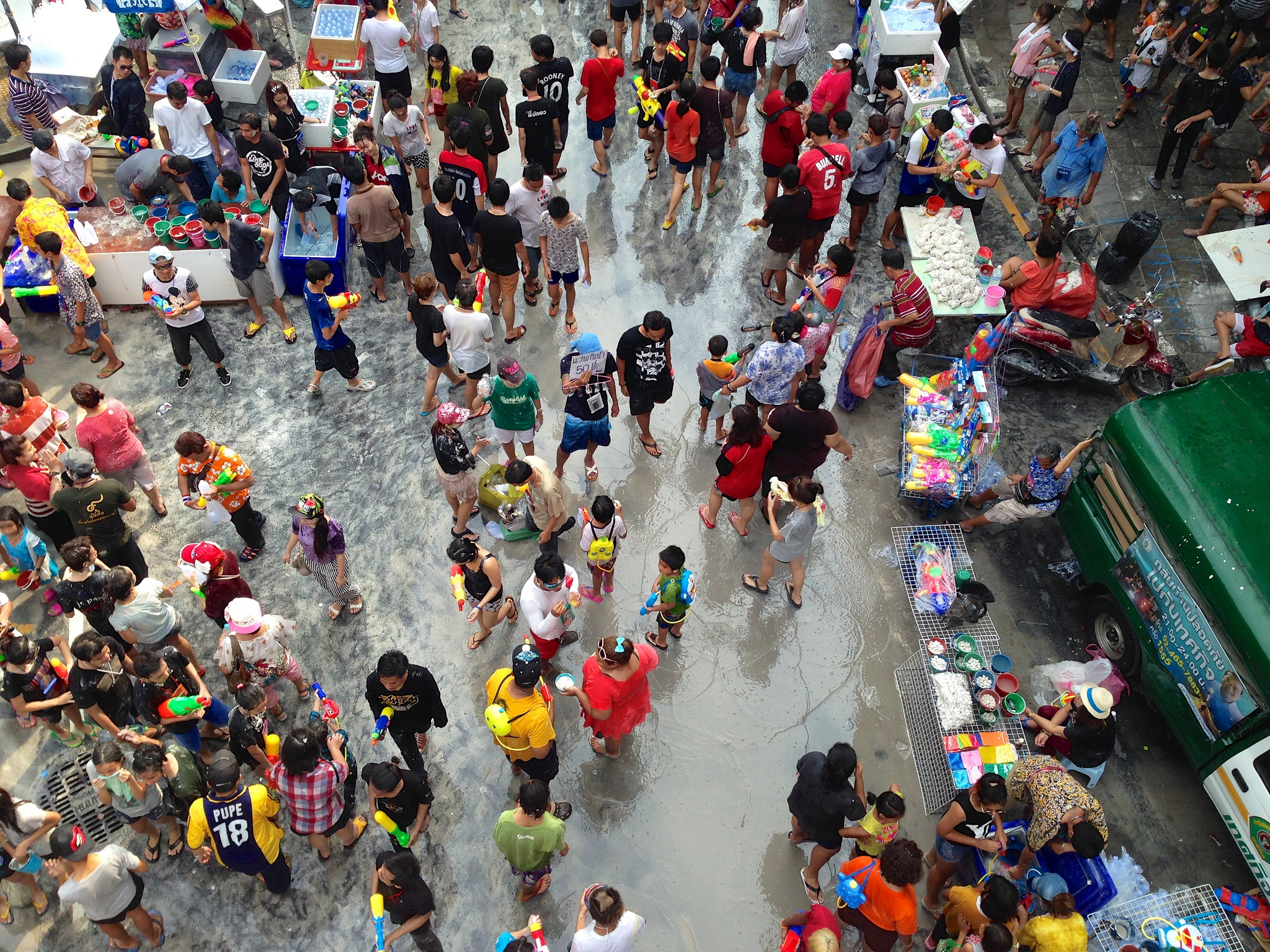
Songkran is celebrated to welcome the Thai New Year, officially set on April 13th. The word Songkran is derived from Sanskrit and means ‘move’ or ‘change’ which refers to the movement of the sun to a different zodiac position – from Aries to Taurus. The timing of the Thai New Year reflects the use of ancient lunar calendars and the old agricultural society that celebrated the New Year based on a new crop cycle.
Celebrations of Songkran usually span four days, from 13th to 16th April, with a different focus and significance each day. Chiangmai usually holds the biggest Songkran festival in Thailand, usually lasting for a week.
First day
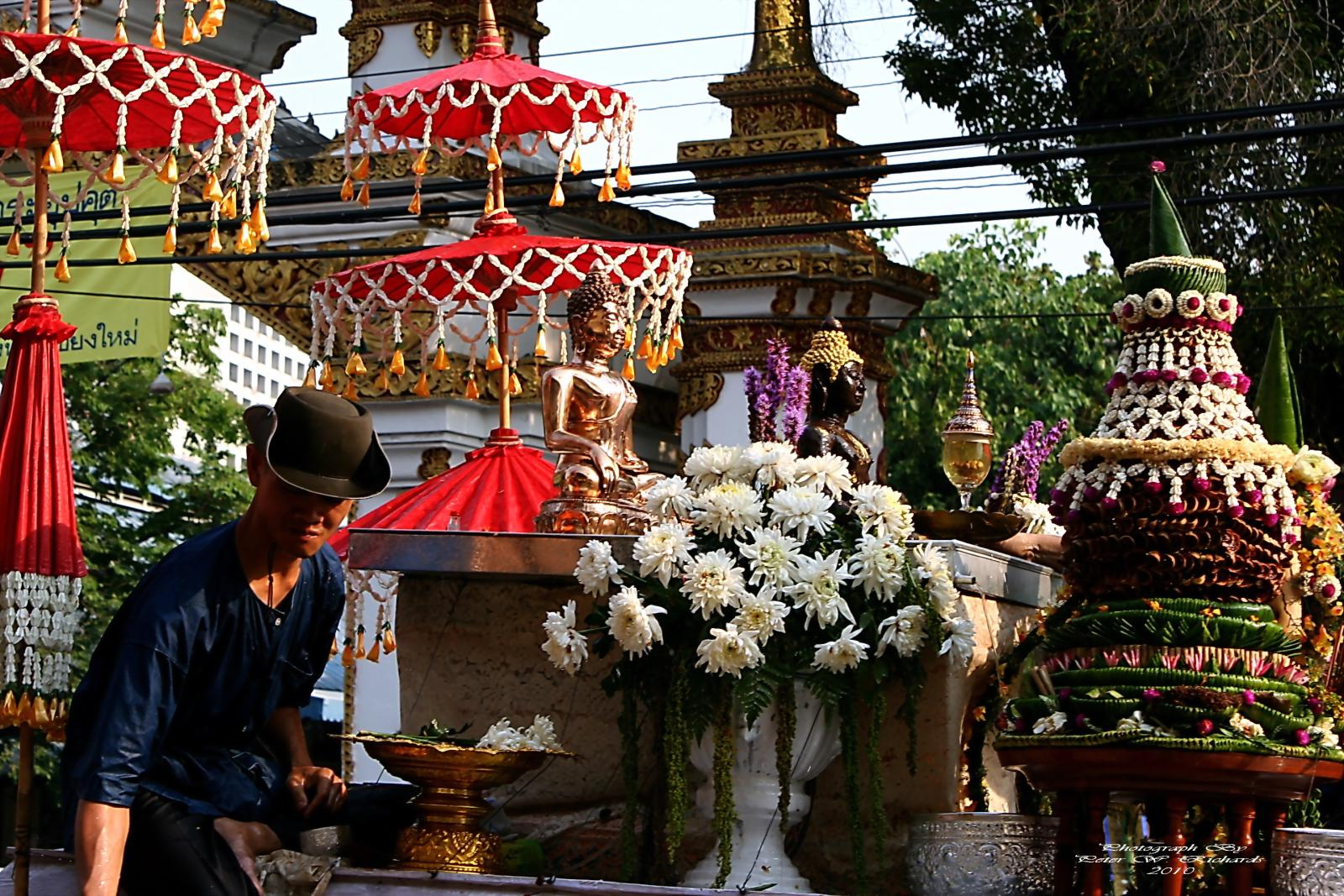
On the first day, people clean their houses and make preparations for the festival and activities. This is the day when the Songkran parade takes place, which featurefloats, musicians and images of Buddha.
Second day
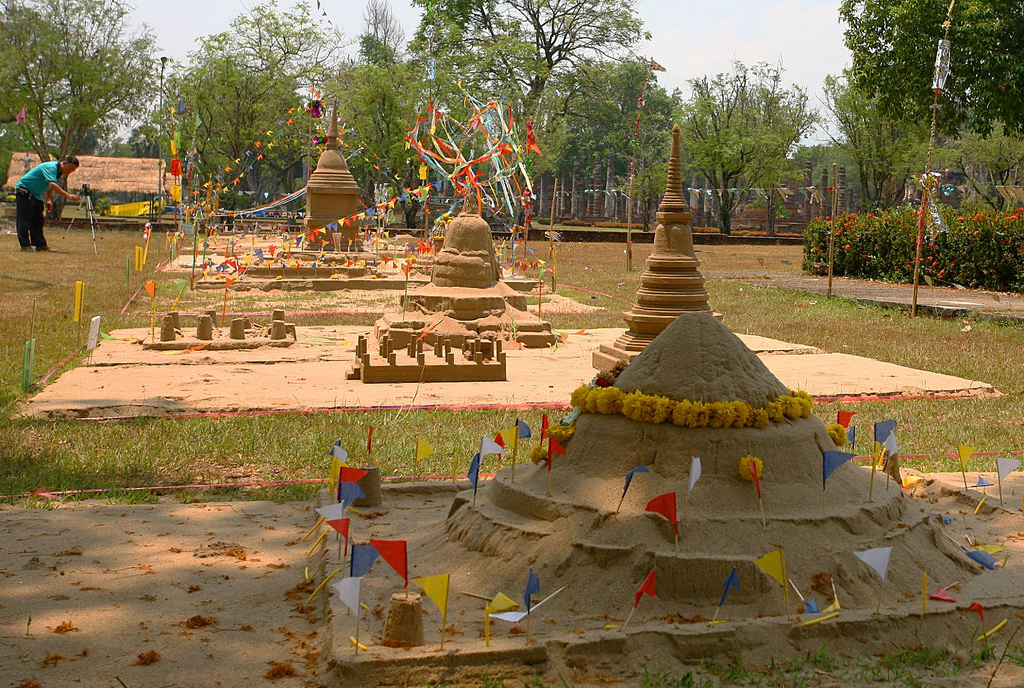
On this day, people begin to prepare meals and preserved foods for ‘merit-making’ the next day. Making merits is a Buddhist custom where devotees do certain things to gain merits, such as giving alms. The belief is that if a devotee gives alms to someone who obeys the five precepts of Buddhism, the donor will receive more merit. Of course, if a donor gives alms to a monk who obeys all 227 precepts, then the merits received will be significantly higher.
This is also the day when people will collect buckets of sand which they will use to build small moulded chedis decorated with flowers and streamers at temples. It’s an old practice that was done to increase the temple grounds. Nowadays, there are competitions held for the best chedi.
Third day
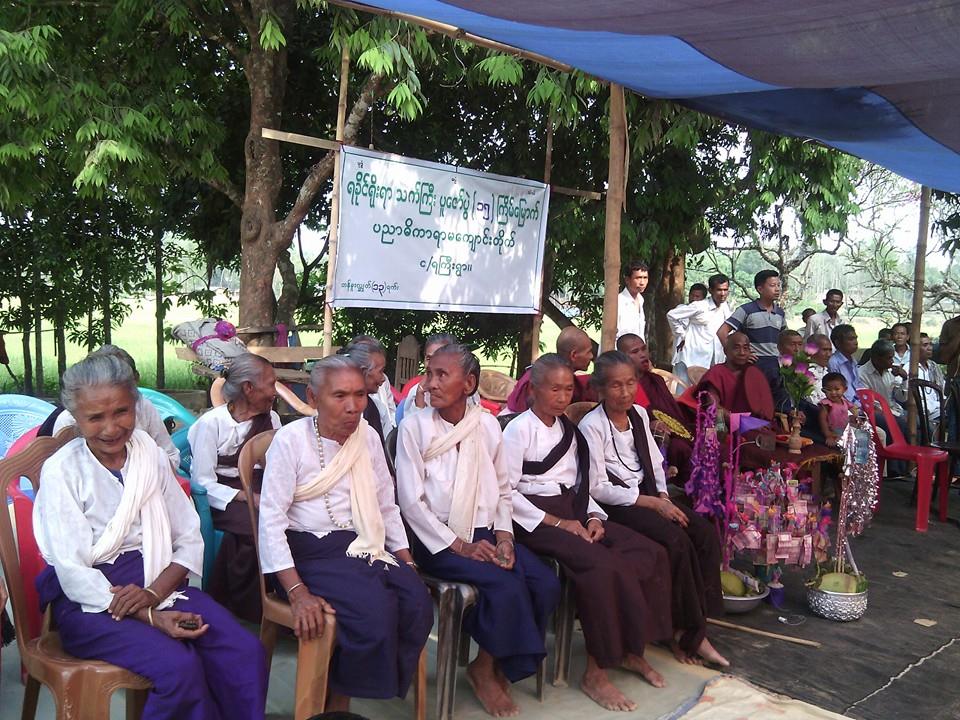
All the preparations from the day before leads to the alms giving and merit making on the third day. Food and clothes are offered to monks at temples as a treat.
On this day, a ceremony of blessing is conducted. This ceremony involves gently sprinkling floral scented water on the hands of elders as a blessing and sign of respect. As the younger folks do this for their elders, they utter prayers and good wishes. This is also the day when the Buddha statue is cleansed with water, which symbolises renewal, and when monks bless the people.
The third day is also the day when the water party begins. Mostly attended by the younger generation, Songkran has become a kingdom-wide water fight and though it may seem like a free-for-all, people in Thailand still retain the traditions and customs related to this festival.
Rituals of Songkran
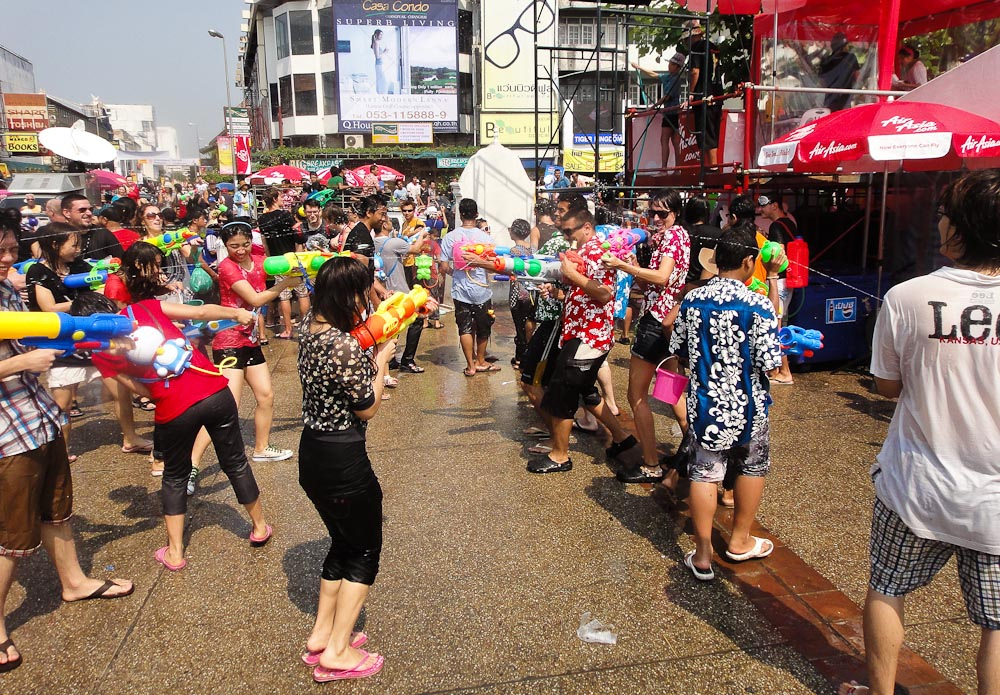
Water plays a major role in the festival as a symbol of renewal. Pouring water on someone, or yourself, is a way of washing away bad luck from the year before so as to start the year fresh and clean.
During the festival, people also tie red strings on each others’ wrists, another blessing for the New Year. As the string is tied to the wrist, the person tying it will say a prayer or blessing for the receiver. The strings are usually left on until they fall off on their own.
The oldest ritual during Songkran is the smearing of a white paste onto the face and neck of others. This is done to ward off evil and functions as protection. Usually, younger people receive these protections from older adults.
The essence of Songkran
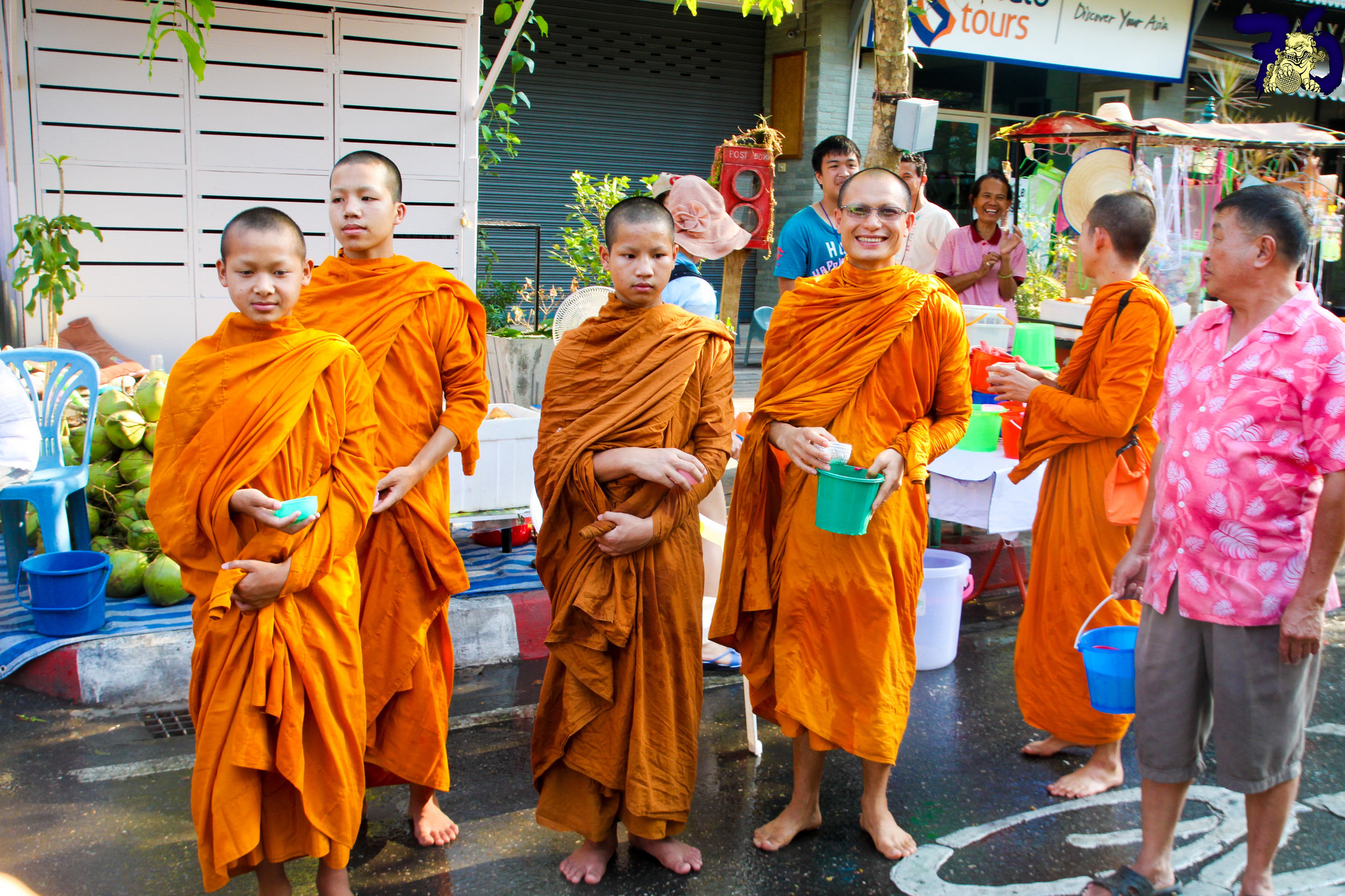
As is evident, Songkran is a celebration of renewal and good blessings. A lot of the rituals involve blessing others and offering good wishes to family, friends, and strangers. It’s a time of care, togetherness, fun, and renewal. So, even though the water fights have become the face of this festival around the world, the essence of Songkran remains strong in the Thai community.
If you want to celebrate Songkran in Malaysia, check out the SongkRUN 5K Water Run on 3 April – it’s billed as an un-timed, non-competitive 5KM fun run, with five Water+Music Zones.
"ExpatGo welcomes and encourages comments, input, and divergent opinions. However, we kindly request that you use suitable language in your comments, and refrain from any sort of personal attack, hate speech, or disparaging rhetoric. Comments not in line with this are subject to removal from the site. "






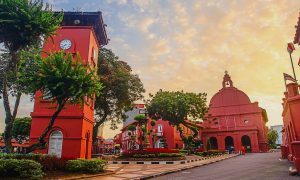



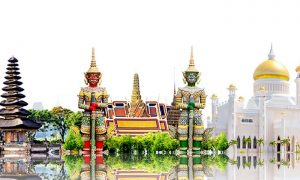

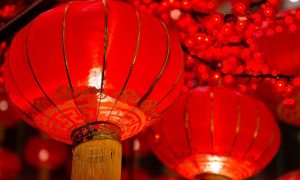

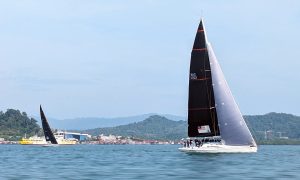



Arul Thiban